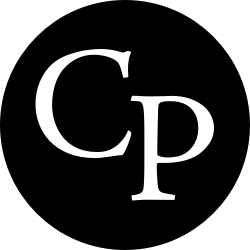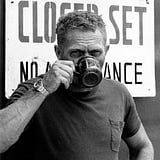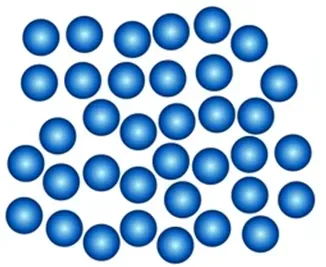Logicism, Formalism, and Intuitionism
The three main contemporary ways to understand the foundations of mathematics.

If you are looking for the answer to the question “which one is best suited philosophy of mathematics?” I’m afraid this article can’t give it to you. But I do encourage you to work on it. In fact, to develop a good answer to the question “what the entire mathematical reasoning is about?” you will probably need to outrun the three main contemporary philosophies of mathematics: formalism, logicism, and intuitionism. Being the three leading scientists of each: Hilbert (formalist), Frege (logicist), and Poincaré (intuitionist). Or, it's possible you will choose one of them when you finish reading this article. Let’s see.
These three philosophies emerged shortly after Peano’s five axioms of arithmetic:
“(1) zero is a number. (2) The successor of any number is a number. (3) No two numbers have the same successor. (4) zero is not the successor of any number. (5) Any property which belongs to zero, and also to the successor of every number which has the property, belongs to all numbers.” Bertrand Russell in Introduction to Mathematical Philosophy (1919).
Peano found, indeed, a good way to reduce the entire arithmetic to a few axioms, and his work was deeply respected by a great part of the scientific community. However, Frege continued to ask questions such as: what about the entire mathematics? Are numbers synthetic or analytical objects? In his most famous work Frege stated,
“For a proposition to be true is just not the same thing as for it to be thought.” Frege in The Foudations of Arithmetic (1884).
For him, in the sentence “The North Sea is 10,000 square miles in extent”, ’10,000 square’ miles would be a classification about the North Sea (and by “classification” we could say it means it is a “set”). But in order to establish what kind of set the arithmetical numbers belong to Frege employed a good deal of philosophical and logical definitions. That is, Frege reduced all mathematical entities to a combination of (1) sets of Cantor’s set theory, (2) a few formations rules stipulated by Frege himself, and (3) some philosophical ideas. For him, for example, the North Sea only need to exist in order to be true (it’s a synthetic kind of object), while any concept of number, or any mathematical truth, needs to follow rules in order to be true (therefore, mathematical objects would be analytical).
Frege, as you may notice, was not an empiricist. But was he wrong? Chess, for example, doesn’t represent quite well a war between two kingdoms, but we may define what’s a truly good move in a chess match based on logical rules (that is, based on the rules of the game).
Let’s continue.
Frege was doing a very formidable work for which he is now considered one of the main names of propositional calculus, and the father of analytical philosophy.
However, Russell, in 1902, sent a very famous letter to Frege in which he noticed a paradox in Cantor’s Set Theory (and consequently in Frege’s ideas too). Frege not only admitted there was a paradox, but he also included a note about Russell’s letter on his second tome of The Basic Laws of Arithmetic (which was about to be published/impressed at the occasion).
The paradox was, in fact, previously discovered by Zermelo, but it was Russell who noticed how important it was. This is how we achieve the paradox:
“consider the class of all classes that are not members of themselves. Is this class a member of itself? If it is, then it is not. and if it is not, then it is.” Simon Blackburn in The Oxford Dictionary of Philosophy (2008).
After it was brought to evidence by Russell, logicians and mathematicians were asking, “then, what sets can contain, and what they can’t? Or, in what circumstances they can’t contain another set?” Since then, no one knows what to do.
Russell, it’s true, tried to find a solution, but, as Wittgenstein noticed, he was censoring arbitrarily the paradox. Wittgenstein, in response to Russell, wrote:
“only the description of expressions (i.e., any sentence in logic) may be presupposed.” Wittgenstein in Tractatus Logico-Philosophicus (1921).
So Russell and Frege seemed to have failed to build a complete foundation for mathematics — or, at least, their work was incomplete somehow —. Then, everything was open for discussion and was formed the three main positions on the matter of the foundation of mathematics: logicism, formalism, and intuitionism.
Logicism:
According to Gratann-Guiness,
“the French word ‘Logistique’ was introduced by Couturat and others at the 1904 International Congress of Philosophy, and was used by Russell and others from then on.” Gratann-Guiness in The Search for Mathematical Roots (2000).
The logicist thesis can be summarized as follows,
“pure mathematics is a branch of logic.” Max Black in The Nature of Mathematics (1933).
And some of the most important names of its adepts are Russell, Frege, Couturat, and Zermelo; although, according to Black, we could see in Leibniz
“the germ of the entire logistic conception.” Max Black in The Nature of Mathematics (1933).
The main reason for this interpretation is that the concept of function was introduced by Leibniz, and it turned possible to arithmetize spatial calculations (that is, it was no longer strictly necessary the drawing of geometrical figures to calculate its properties). Let’s see what Leibniz (1646-1716) himself said about it in a letter he sent to Huygens (1629-1695):
“(…) it is often difficult to analyze the properties of a figure by calculation, and still more difficult to find very convenient geometrical demonstrations and constructions, even when the algebraic calculation is completed. But this new characteristic (functions), which follows the visual figures, cannot fail to give the solution, the construction, and the geometric demonstration all at the same time, and in a natural way and in one analysis, that is, through determined procedure.” Leibniz in Gottfried Wilhelm Leibniz Philosophical Papers and Letters (1989).
Leibniz’s functions gave arithmetic the possibility to represent big geometrical calculations. Because of this, mathematicians were discovering new ways to use more symbolical calculations. They were discovering, for example, new possibilities for logic (see Boole’s logic). And then the logicists thought those functions could help describe the foundations of the entire mathematical reasoning.
Formalism:
According to Black, formalists thought pure mathematics was “the science of the formal structure of symbols.” And they rejected the idea that
“mathematical concepts can be reduced to logical concepts.” Max Black in The Nature of Mathematics (1933).
Formalists were, in fact, creating an opposition between logic and mathematics in the heated discussions of the foundations of mathematics.
The leading formalist was David Hilbert. He was the first to use the term ‘formalism’; although, initially, he had no intention to refer to a philosophical position in mathematics with it. According to Sinaceur,
“In his essays on the foundations of mathematics, Hilbert did use the German word ‘Formalismus’, but not to characterize a philosophical attitude towards questions on the nature of mathematical objects or practice. ‘Formalismus’ meant ‘formal system’ or ‘formal language’, both technical concepts of mathematical logic.” The term was used, according to him (my note), “only in the technical sense and" and he explained (my note) “that the use of formulas, i.e. formalization, is a necessary tool of logical investigation.” Sinaceur in Logicism, intuitionism, and formalism: What has become of them? (2019).
‘Formalism' was first taken as a philosophical posture by Luitzen Brouwer. For Brouwer, Hilbert was grounding mathematics
“in a logical, i.e. a non-mathematical, conviction of legitimacy.” Sinaceur in Logicism, intuitionism, and formalism: What has become of them? (2019).
Brouwer refused Hilbert’s philosophy, which was summarized by Hilbert himself as follows
“If the arbitrarily given axioms do not contradict one another, then they are true, and the things defined by the axioms exist.” David Hilbert in Gottlob Frege: Philosophical and Mathematical Correspondence (1980).
Brouwer’s criticisms were indeed pertinent, however, Hilbert’s methods achieved the first consistent foundation for the Euclidean geometry (for which the entire scientific community was really pleased).
Here are two other important names of the formalist philosophy: Carnap and Quine.
- Carnap is considered one of the greatest logic positivists (or logic empiricists), and he also
“was one of the originators of the new field of ‘philosophy of science’ and later a leading contributor to semantics and inductive logic.” Leitgeb and Carus in The Stanford Encyclopedia of Philosophy: Rudolf Carnap (2020).
His opinion on the foundations of mathematics was:
“The formalist view is right in holding that the construction of the system can be effected purely formally, that is to say without reference to the meaning of the symbols.” Carnap in The Logical Syntax of Language (1937).
- Quine, on the other hand, is considered one of the most influential philosophers of the second half of the 20th. In his texts about ontology, philosophy of language, and epistemology he achieved (in a quite indirectly way) a philosophy of mathematics. Let’s see. He rejected
“the attempt to ground knowledge of the external world in allegedly transcendent and self-validating mental experience.” Duignan in Encyclopedia Britannica: Willard Van Orman Quine (2019).
For him,
“The proper task of a ‘naturalized epistemology’, as he saw it, was simply to give a psychological account of how scientific knowledge is actually obtained.” Duignan in Encyclopedia Britannica: Willard Van Orman Quine (2019).
And he understood that
“mathematical theories are part and parcel of scientific theories, they too are confirmed by experience.” Horsten in The Stanford Encyclopedia of Philosophy: Philosophy of Mathematics (2019).
So Quine thought ‘experience’ would be responsible to decide if a proposition is true or false in the formal science which is mathematics. This thesis was part of his promise of a holistic unification between analytical and synthetic propositions. If this unification were verified, then formalism would only need an empirical basis to ground its fundamental propositions.
Intuitionism:
Brouwer was the first to assign a philosophical meaning to the terms ‘intuitionism’ and ‘formalism’. And he saw no distinction between logicism and formalism. From his point of view, formalists and logicists were attesting only a linguistic existence of mathematical entities.
According to Kreisel,
“the real opposition between Brouwer’s and Hilbert’s approach was (…) between the conception of what constitutes a foundation.” Kreisel in Hilbert’s Programme (1958).
Brouwer believed philosophy of mathematics needed not only consistency (like Hilbert). For Brouwer, it was needed intuitions to justify the “existence” of mathematical entities. However, this intuitionist demand seemed either little pragmatic or little mathematically productive (that is, it does not reach important abstractions that could be linked to the calculation of mathematical entities).
Besides Brouwer, there were other important names in intuitionism like Kronecker (considered a pre-intuitionist), and Heyting. But none of them was more famous than Poincaré. Poincaré was trying to defend Kant from the attacks of the “new logic” (Frege, for example, wrote directly against Kant’s philosophy of mathematic). In fact, Kant’s idea of ‘pure forms of intuition founding the entire rational thought’ was losing popularity with the emergence of some “counter-intuitive” scientific theories like Darwin’s theory of evolution, non-Euclidean geometry, and, later, Einstein’s relativity. So Poincaré was trying to reconcile the pure forms of Kant’s transcendental intuition with what he understood as the inventiveness of scientists.
In short:
- Logicism: the foundation of mathematics can be achieved by logical elements like formation rules, or ‘grammatical’ rules, and some philosophical notions.
- Formalism: formal elements can ground mathematics, but not necessarily logical elements(and I would say the less philosophical the better for them).
- Intuitionism: points out non-formal, but “intuitive” subjects, as fundamental for the foundation of mathematics. And I would say they do not reject deep philosophical questions about the nature of mathematics.





